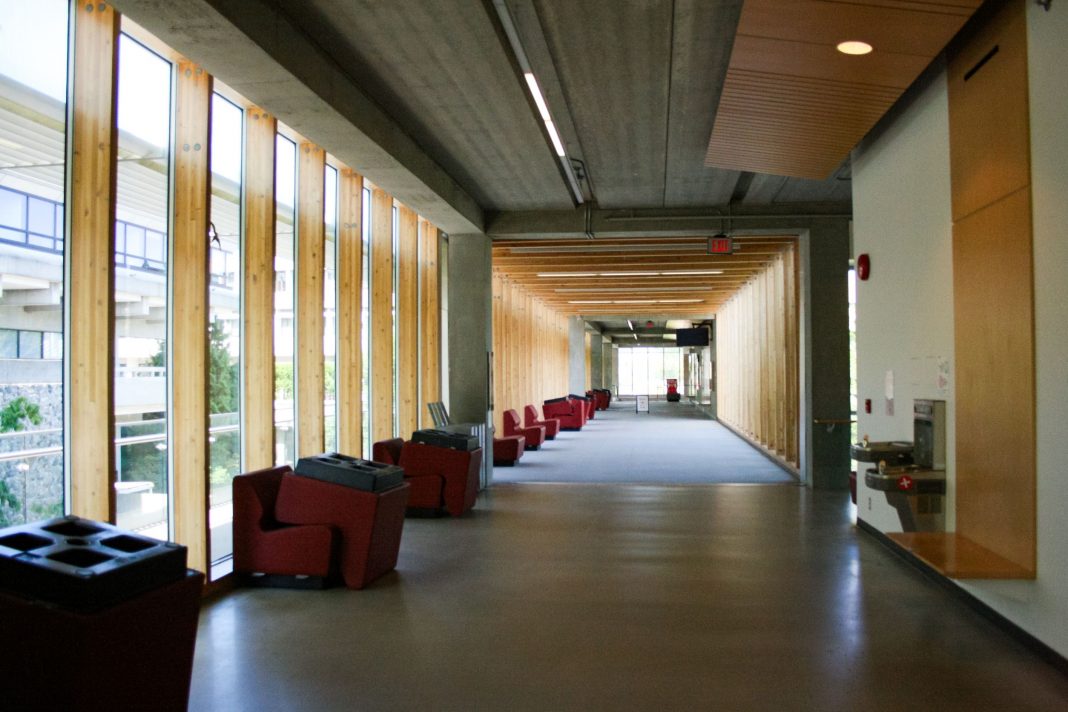Written by: Jaymee Salisi, News Writer
Content warning: mention of residential schools
From June 24 to 29, SFU held virtual convocation ceremonies for the June 2021 graduates. “If you tune into SFU’s Virtual Convocation this June, you’ll notice a set of updated convocation traditions stemming from SFU’s ongoing commitment to reconciliation,” SFU said in a news release.
Their new practices include xʷməθkʷəy̓əm (Musqueam) ceremonial drumming and singing during the opening ceremony, a Coast Salish welcome message, redesigned regalia for the chancellor and president, and a land acknowledgement. These traditions were followed by the Canadian national anthem.
This was met with controversy online.
Under the #CancelCanadaDay tag, SFU Students of Carribean and African Ancestry president Balqees Jama tweeted, “Stomach feeling twisted when I hear the Canadian national anthem sung at SFU convocation amidst all the collective grief Indigenous people are dealing with at the hands of colonial Canada.” SFSS Science Representative WeiChun Kua said, “Was really unsettling to have the national anthem played and then have [Joy Johnson] talk about residential schools.”
The Peak reached out to the First Nations Student Association for their thoughts on the subject.
A board member who asked to remain anonymous said, “My answers are my own opinion. I am Indigenous but I do not represent the opinions of all Indigenous peoples. The following is my reflection based on my personal experience and family history. I strongly encourage readers to get to know the Indigenous peoples and the history of their region.”
She said the Canadian national anthem — as well as all other anthems — are colonial to an extent, as it celebrates the country’s history. Ultimately, she believes the national anthem’s meaning is “vague and open to interpretation.”
The board member explained that, before the anthem, “Alec Dan shared a beautiful drum song, the Paddle song. In addition, Elder Margaret prayed all before the SFU choir sung the Canadian national anthem. This is similar to having an Indigenous flag hanging higher than the Canadian flag.”
She added, “The paddle song and prayer were beautiful. If Alec Dan and Elder Margaret are reading this, marsii, thank you for sharing your song and for the prayer.”
In regards to the anthem itself, she said, “We must remember that SFU was in a very tight spot. Any and all action would be seen as controversial [ . . . ] SFU was being political in their choice.”
Director, media relations and public affairs Tiffany Akins said in a statement that SFU is devoted to reconciliation, which includes “examining the truths of our past and present. Some convocation traditions have carried on through the years.”
The board member added, “The opening ceremonies were not perfect and they could have done more. SFU is, after all, a Canadian institution — they are bound to rules, funding, political sway, and more factors than we as students are aware of.”
Akins said the new traditions have been added to “pay respect to the peoples on whose unceded traditional territories our campuses are situated. SFU’s Ceremonies and Events team hired Nicole Taylor-Sterrit as manager of Indigenous event protocols.
Taylor-Sterrit’s responsibilities include finding ways to integrate Indigenous practices in university events and traditions. She wrote on SFU News, “Indigenizing convocation gives us an opportunity to educate, incite questions and foster dialogue around the history of Indigenous peoples in Canada, Indigenous protocols, ceremonies and reconciliation with our community.”
“Reconciliation is about healing.” The FNSA board member added, “Listening and acting according to Indigenous voices are key to healing.
“We will still be here in seven generations, but our wounds should not take seven generations to heal.
“SFU needs to have ongoing communication and a continuous open dialogue with Indigenous peoples including students and the surrounding communities.” She suggested giving Indigenous presenters the same amount of time as SFU board members during meetings. For example, she said the university should include Indigenous people in conversations about university developments such as the First Peoples’ Gathering House.
“A stamp of approval on the products of a working group is not reconciliation. We need to be present at every step,” she said.
Find out more about SFU’s steps towards reconciliation on their website.




